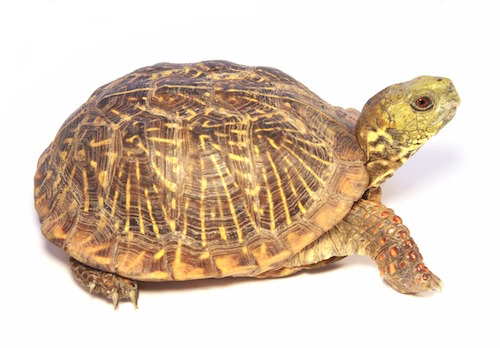Understanding the Ornate Box Turtle’s Habitat and Behavior
The ornate box turtle (Terrapene ornata) predominantly inhabits grasslands, prairies, and open woodlands, which provide an ideal balance of sunlight and cover for their daily activities. This terrestrial species has adapted to a variety of environments, displaying flexibility in its choice of habitat as long as there are suitable conditions for foraging and nesting. They thrive in areas with ample vegetation, which not only serves as a source of food but also provides shelter from predators and extreme weather conditions.
In terms of behavior, ornate box turtles exhibit diurnal patterns, meaning they are most active during the day. Their foraging habits are particularly interesting, as they often search for a diverse diet that includes vegetation, fruits, and insects. This varied diet is vital for their health and well-being, making them an essential part of their ecosystem. During the mating season, which typically occurs in the spring, ornate box turtles engage in various courtship behaviors, such as head bobbing and circling one another. Understanding these behaviors is crucial for their conservation, as habitat disruption can severely impact their reproductive success.
Conservation efforts are paramount for protecting the ornate box turtle’s natural habitat from urban development and environmental changes that threaten their survival. As human activity encroaches on their habitats, these turtles face challenges such as habitat fragmentation, which can hinder their movement and access to food sources. Additionally, climate change poses a significant risk, affecting their behavior and the availability of nesting sites. It is vital to implement measures that preserve their habitats and promote awareness about the importance of maintaining biodiversity. By safeguarding their environments, we can ensure that the ornate box turtle continues to flourish as a colorful companion in the world of herpetology.
Caring for Ornate Box Turtles in Captivity
Ornate box turtles, known for their vibrant shells and engaging personalities, require specific care when kept in captivity to ensure their health and well-being. To provide these reptiles with a suitable habitat, it is crucial to create an environment that mimics their natural surroundings. A spacious enclosure is essential, allowing room for exploration and exercise. The enclosure should include a variety of substrates, such as coconut coir or peat moss, which facilitate burrowing and help maintain appropriate humidity levels.
Humidity plays a vital role in the health of ornate box turtles. Maintaining humidity between 50% to 70% is necessary to support proper hydration and prevent respiratory issues. A shallow water dish should be available at all times to encourage drinking and soaking, as moisture is critical for their skin and overall health. It is important to monitor the substrate’s moisture and regularly mist the enclosure to achieve optimal humidity levels.
Diet is another fundamental aspect of caring for ornate box turtles. A balanced diet that includes a mix of leafy greens, vegetables, and commercially available turtle pellets is recommended. Additionally, live food such as insects can be offered as a protein source. It is essential to avoid feeding them high-fat or processed foods, as these can lead to obesity and other health issues.
Regular veterinary check-ups are crucial in preventing potential health problems. Common issues that may affect ornate box turtles include shell rot, respiratory infection, and metabolic bone disease. By maintaining appropriate care and promptly addressing any concerns, owners can ensure their turtles lead a healthy and enriched life. Furthermore, fostering a responsible ownership attitude promotes the well-being of these remarkable reptiles, allowing their vibrant personalities to thrive in a captive environment.





